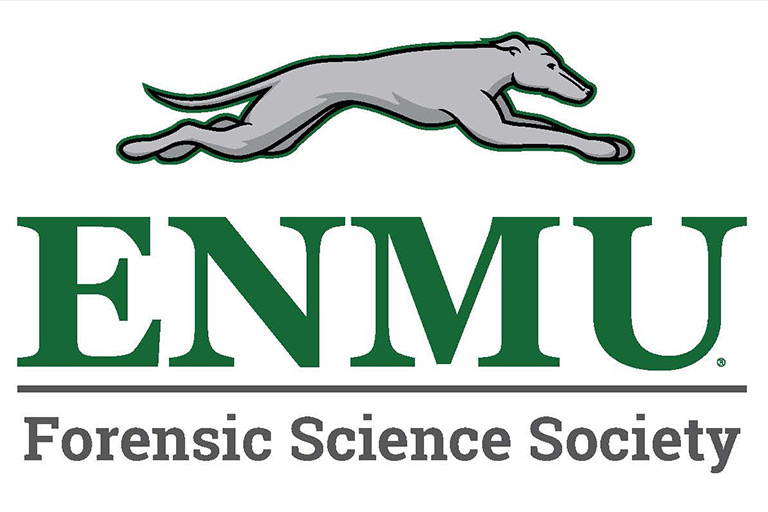20 students from Eastern New Mexico University attended the American Academy of Forensic Sciences Annual Scientific Meeting from Feb. 19-24 in Seattle, Washington. The meeting is attended by forensic science professionals from around the world.
13 of the students were members of the ENMU Forensic Science Society (FFS), five were biological anthropology majors and two were graduate students. Dr. Kerriann Marden, the faculty advisor of ENMU FSS, expects that the graduate students who attended this year's meeting will be presenting their thesis data at the annual scientific meeting next year.
The student officers of ENMU FSS include President Rebecca Quintana, a senior majoring in forensic chemistry with a minor in criminal justice, Vice President Blake Ahrens, a junior majoring in forensic biology with a minor in criminal justice, Historian Marisol Montano, a senior majoring in biological anthropology, Treasurer Jessica Swillum, a sophomore majoring in biological anthropology, and Secretary Reyna Ibarra, a sophomore majoring in majoring in forensic biology with a minor in criminal justice.
The student officers discuss their experience in ENMU FSS:
1. What is ENMU FSS?
The Forensic Science Society is an interdisciplinary organization on campus whose goal is to supplement each student's interest and/or career path in forensic science. The Forensic Science Society is an active organization on campus, participating in ENMU activities as well as hosting forensic-focused events, including guest speakers, professional trips locally and nationally, guided tours of major forensic facilities, etc.
2. Why did you become involved in ENMU FSS?
We joined for many reasons: to develop ourselves professionally in our field, to explore potential career paths, to meet new people and to be more involved on campus.
3. What is your favorite thing about this organization?
Some of our favorite things about this organization are how much we have been able to accomplish in these past few years, how we have all bonded and become closer, and especially, the opportunities we've gained from joining the club: attending the American Academy of Forensic Sciences annual meetings in New Orleans (2017) and Seattle (2018), networking in the field and becoming knowledgeable about multiple topics.
4. When are the meetings and how do you become a member?
Our meetings for the Forensic Science Society are every Wednesday at 5 p.m. in the College of Business Room 109. You can become a member by showing up to the meetings and participating in our fundraising and field-related events. You do not need to major in forensic science as long as you're interested in the field!
Dr. Marden discusses her role with the ENMU FSS:
1. How long have you been an advisor of the organization? What are your duties as the advisor?
I've been advisor for this organization since I arrived on campus in August 2013. I'm both very proud and a little embarrassed to say that I don't really need to do much as their advisor, other than providing my support and advice on occasion, and helping them navigate some of the administrative hurdles. They are such a self-motivated group that they really don't need much guidance or prodding.
2. What is ENMU FSS?
The FSS was originally founded to provide an informal opportunity for students across the multiple forensic disciplines to come together, get to know each other and share ideas and expertise across the members' respective fields. One of the exciting things about forensic science, both as a major and as an occupation, is that it is, by definition, interdisciplinary. This means that there is a lot of contact and communication between scientists of all kinds. Forensic scientists interact between the emphasis areas we offer here at ENMU (anthropology, biology and chemistry), but there are also forensic applications of any science, from psychology to physics and from DNA to digital forensics. This fosters respect and appreciation across all fields, and the variety makes every case exciting.
3. What is your favorite part of being an advisor for the organization?
Having been here for four-and-a-half years, this year's commencement will be the first group of graduates whom I've known from their first campus visit to their application to graduation. I think that seeing this crop of bold, skilled, intelligent and determined graduates cross the stage will be the highlight of my time here at Eastern.



